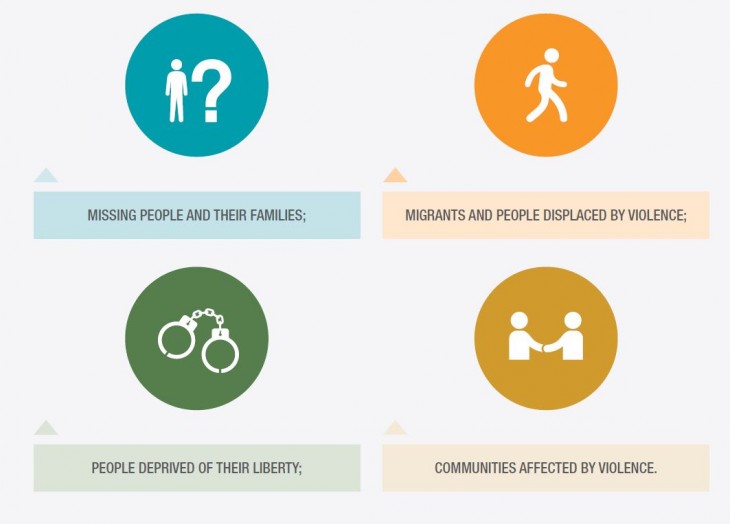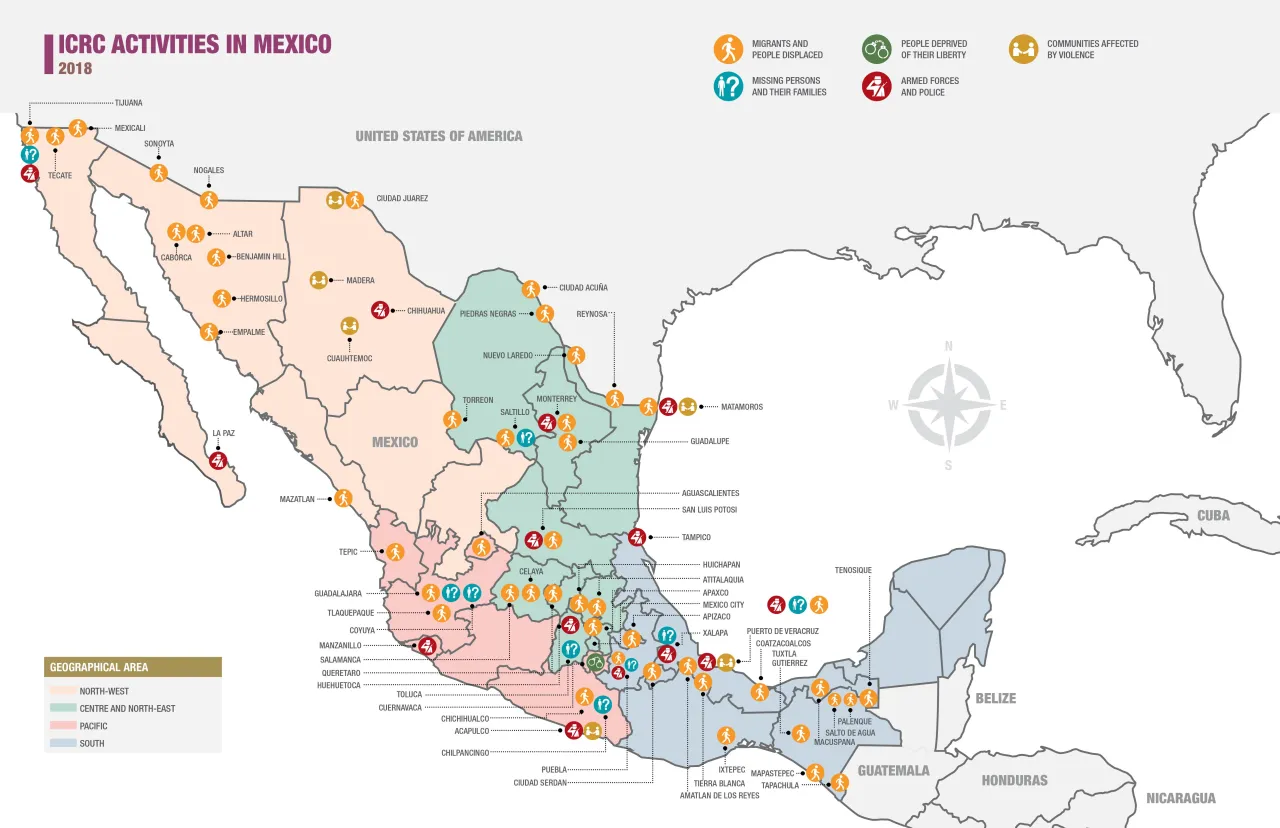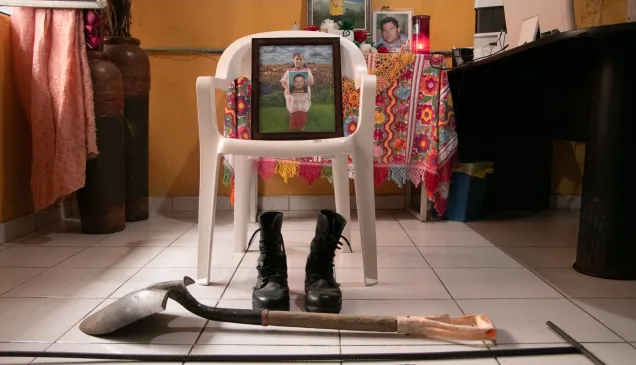Mexico Annual Report 2019
In 2018, the high levels of violence in Mexico continued to cause suffering and had serious humanitarian consequences. The violence resulted in people being killed (34,202 in 2018, i.e. 23.10 for every 100,000 people), wounded, missing, displaced and leaving the country. The violence also hindered the delivery of basic education and health-care services.
In the spotlight:
A New Phase in the Search for Missing People
By Jordi Raich, head of the regional delegation for Mexico and Central America
45,000 Minutes of Hope are not Enough
By Martienus De Boer, deputy head of the regional delegation for Mexico and Central America
Introduction:
The ICRC is an impartial, neutral and independent organization whose exclusively humanitarian mission is to protect the lives and dignity of victims of armed conflict and other situations of violence and to provide them with assistance. The ICRC also endeavours to prevent suffering and improve respect for people's fundamental rights by promoting and strengthening humanitarian law and universal humanitarian principles.

The ICRC also works with the security forces to promote and integrate international norms and standards in their law enforcement operations and raise awareness of various humanitarian issues.




